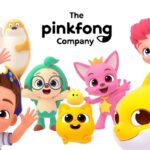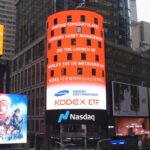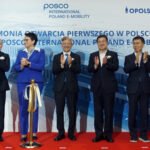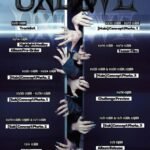Korea Zinc Vice Chairman Lee Je-joong speaks at a press conference to protest against a potential takeover by MBK in Seoul on Sept. 24, 2024 (Photo by Bum-June Kim)
Korea Zinc Inc., the world’s top zinc and lead smelter, is set to sell 400 billion won ($300.9 million) in commercial papers, its first fundraising in the capital market in 23 years, amid the intensifying battle over the management control against Northeast Asia-based private equity firm MBK Partners Ltd.
Korea Zinc secured 200 billion won through the issuance of a commercial paper with a six-month maturity at a coupon rate of mid-to-high 3% managed by a major local brokerage Korea Investment & Securities Co., according to investment banking industry sources on Wednesday. The commercial paper was graded at A1, the highest rating for such a short-term, unsecured debt instrument.
The smelter also plans to sell an additional 200 billion won in commercial paper next week managed by another domestic brokerage KB Securities Co.
The company had considered selling corporate bonds with longer maturities but decided to issue commercial papers, given the recent volatility in market interest rates.
Korea Zinc and securities firms said the proceeds will be used as working capital for its new growth drives such as secondary battery materials and renewable energy businesses.
It last raised money from the local capital market in 2001 when it sold 30 billion won in corporate bonds.
MONEY TO FIGHT AGAINST MBK?
Korea Zinc may use the proceeds from the latest commercial papers to take countermeasures against MBK and the company’s top shareholder Young Poong Group, which are seeking management control through a takeover bid of up to 2 trillion won.
The company does not need an urgent fund as it had cash equivalents of 2.1 trillion won, far more than borrowings of 1.4 trillion won as of end-June, industry sources said.
South Korea’s Hanwha Group and LG Group, which have stakes in Korea Zinc, are likely to support Chair Choi Yun-birm. Korea Investment & Securities, which has a 0.8% stake, planned to raise some 2 trillion won with local and foreign private equity firms to help Choi.
Korea Zinc asked the government to designate its technology as a national core technology to fend off a potential takeover by MBK.
A company with a national core technology needs to get approval from the government when its major shareholders seek to sell it to foreigners, a policy to protect vital industries.
Once Korea Zinc secures the status, MBK will not be able to sell it to foreign companies such as Chinese rivals, although the Seoul-based private equity firm pledged not to sell it to investors in the mainland.
“We applied to the government for the designation of our patent technology for processing high nickel precursors as a national core technology,” said a Korea Zinc official.
LEGAL BATTLES
Young Poong Corp., the group’s controlling company, filed a complaint against Choi and a former president on a charge of embezzlement with the prosecution.
Young Poong said their decisions on investments in private equity funds and the acquisition of Igneo Holdings LLC caused losses to Korea Zinc.
The smelter bought a majority stake in the US-based electronic waste recycling company for $332 million in 2022 to expand its footprint in the battery materials market.
The move came after Young Poong Precision Corp. controlled by Choi and his family filed a complaint against Young Poong Group Advisor Chang Hyung-jin and MBK’s partner Kim Kwang Il to the prosecution, saying their agreement caused damage to Korea Zinc.
Young Poong Group was founded by Chang Byung-hee and Choi Ki-ho in 1949. The group’s two major affiliates have largely been run by their descendants. The Chang family controls Young Poong Corp. and the electronic parts units, while the Choi family manages Korea Zinc and the non-electronics units.
Their conflicts heated up as Korea Zinc, the conglomerate’s cash cow, issued new shares to Hyundai Motor Group and swapped treasury stocks with Hanwha Corp. and LG Chem Ltd.
The smelter accelerated its efforts to terminate its decades-long business relations with Young Poong Group by dominating the boardroom of group affiliate Sorin Corp in June.
By Ik-Hwan Kim, Hyun-Ju Jang and Hyeon-woo Oh
lovepen@hankyung.com
Jongwoo Cheon edited this article.














